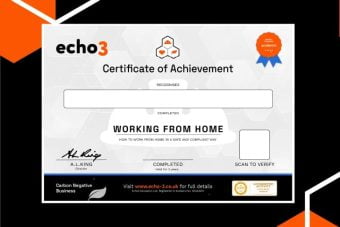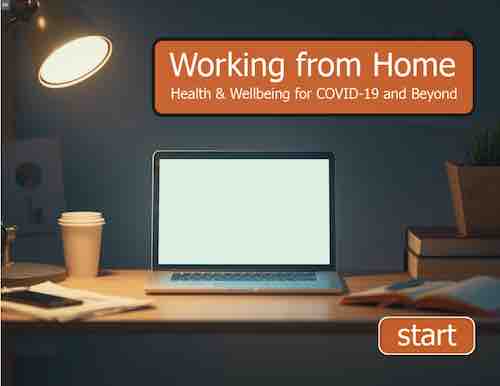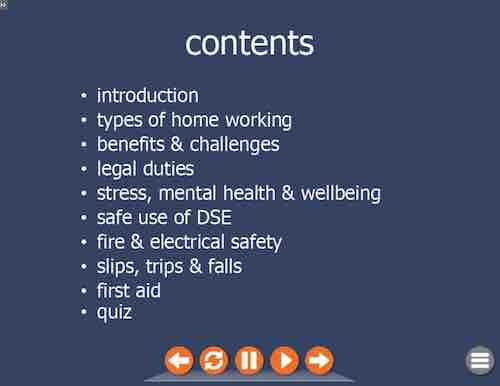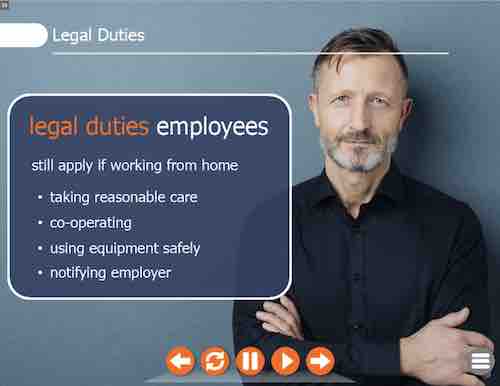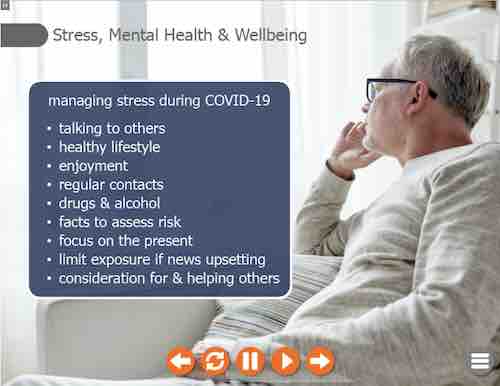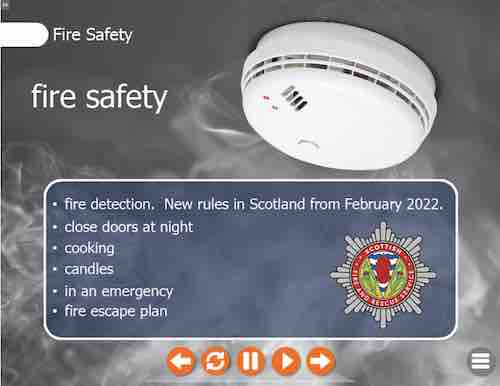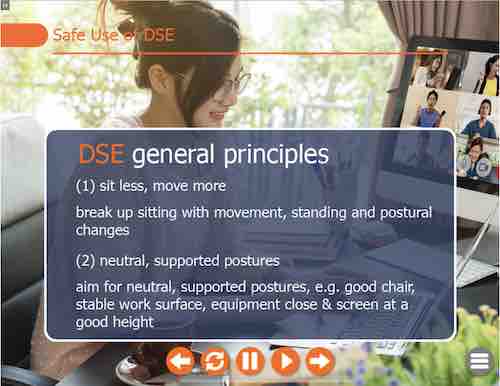Working From Home Course
This online Working from Home course is important because employers have the same duty of care to home workers as they do all other employees.
The online Working from Home course aims to provide both employers and employees with clear and relevant information about home working and health & wellbeing generally.
While beneficial for lots of reasons, home working also presents various challenges. These include for management and supervision, communication, and numerous diverse working environments.
The number of employees now working from home because of the coronavirus pandemic is unprecedented, and on a global scale. For many staff, this massive change to working practice will have happened abruptly. It may be their first experience of working in the way, and against a background of wider concerns about health, loved ones and the future.
At the same time as helping employers meet their obligations to staff, Working from Home training provides employees with useful and reassuring information they can use to work safely and effectively from home, now and into the future.
If you wish staff to complete their own risk assessment as part of Working from Home, you can purchase this alternative version of the course.
Course Content
- introduction
- types of home working
- benefits & challenges
- legal duties
- stress, mental health & wellbeing
- safe use of DSE
- fire & electrical safety
- slips, trips and falls
- first aid
- quiz
Working From Home Certificate


At the end of the online Working From Home course there is a 10 question, multiple-choice quiz. If learners demonstrate their understanding of course content by achieving a minimum score of 70%, we’ll email them their completion certificate. If learners score less than 70%, they can revisit any part of the course and retake the quiz until they are successful.
What are the course objectives?
To provide staff, their managers and employers with the relevant information they need to successfully manage risks to health and wellbeing linked to working from home.
What are the learning outcomes?
- Awareness of the different types of, and reasons for, home working.
- Understanding the pros and cons of working from home, both for individuals and their employer.
- Appreciation of the legal duties of employers and staff as regards home working, including the extent of an employer’s obligations.
- Understanding the main risks to physical and mental health from working at home, and how these can be addressed.
What is ‘Working from Home’?
The phrase ‘working from home’ can mean a number of different things.
It can refer to being mainly office-based, but doing the odd piece of work from home as and when required, on an informal, ad-hoc basis. Or you might have a more formal agreement, for example to be permanently based at home, or to regularly work from home for one or more days a week, rather than coming into the office.
Having flexibility like this to agree where and when you work is known as hybrid working. Working from home can also be a temporary response to business interruption, such as fire or flood. During the COVID-19 coronavirus pandemic, when lockdown restrictions came into force millions of people across the world had no alternative but to work from home, to reduce face-to-face contact and infection rates.
For many, working from home has been a positive experience overall. As restrictions ease and more us are able to return to the office, hybrid working patterns are set to become much more common than they were before the pandemic.
How should the risk from Fire be managed at home?
Managing the risks from fire in private homes is obviously different from doing the same in a controlled office environment.
But there are important steps your staff can take to minimise their risks. These are;
- Fire detection equipment such as smoke alarms gives you and others a chance to evacuate safely before it’s too late. From February 2022, every home in Scotland must have smoke detectors – plus a heat alarm installed in the kitchen – which are all connected to each other.
- Doors slow down the spread of flames, smoke and gases so make sure these are closed at night.
- More fires begin in the kitchen than any other room in the house. Never leave a cooker unattended while it is in use.
- Keep lit candles away from children, pets, curtains and any other flammable materials.
- If a fire does happen, the basic advice is simple – get out, stay out and call 999. Having and practicing a fire escape plan helps everyone to know what to do, and how to get out if your main route of escape is blocked.
Echo3 also offer Fire Safety training for staff.
Is there further information about Working From Home?
Yes. This Working From Home course provides general information about working from home, and is mainly aimed at staff performing low-risk activities such as office work. Staff may also require Display Screen Equipment training.
If you have any queries about your organisation’s specific home working procedures, please contact your employer for more information. See full UK Health & Safety guidance – HERE







